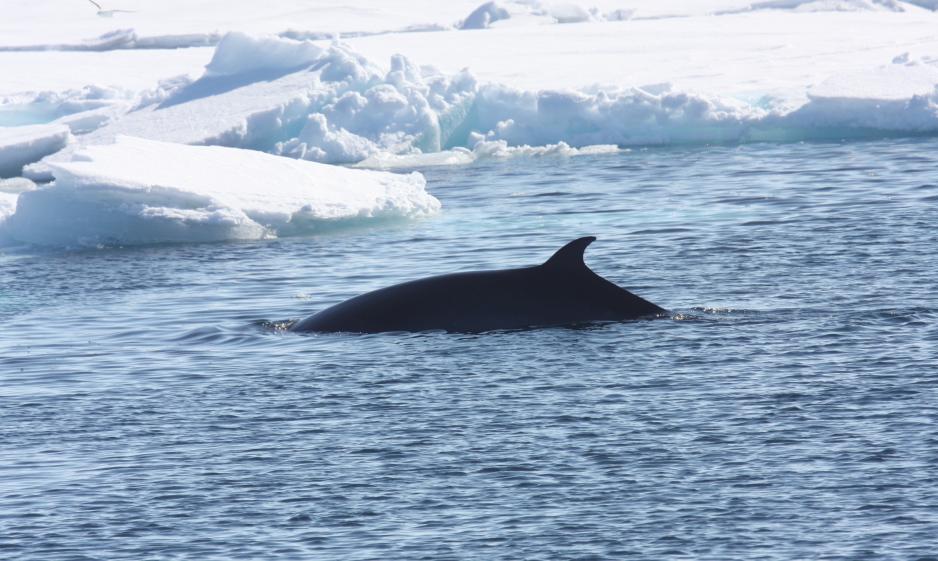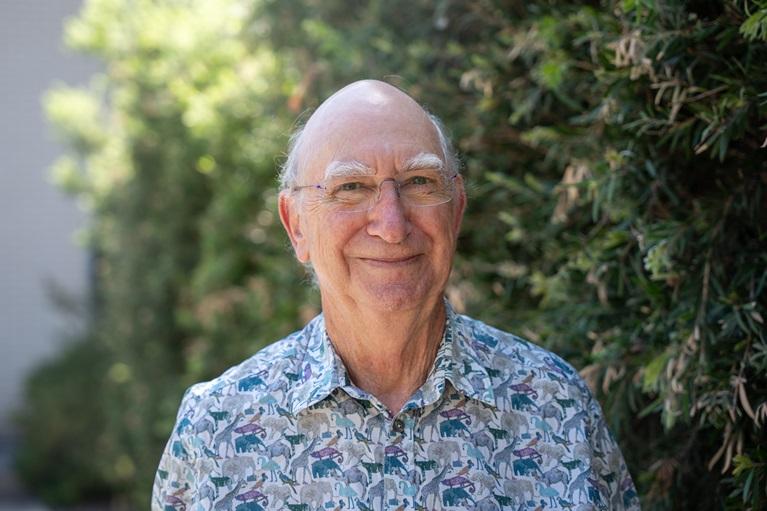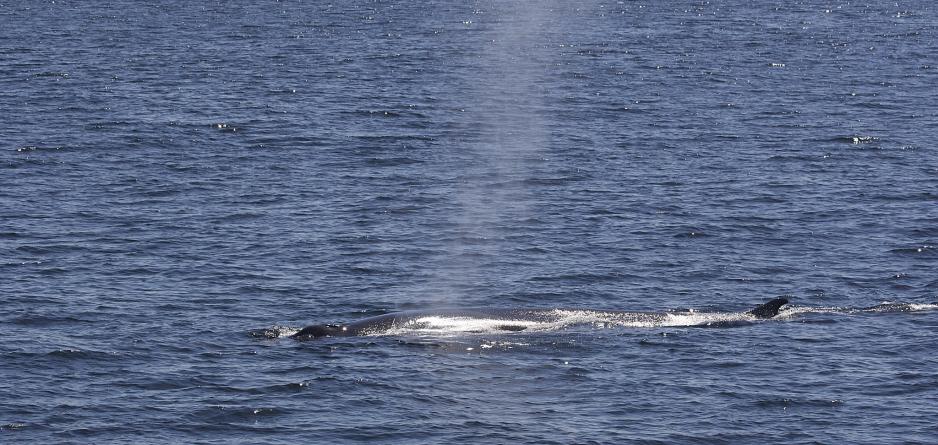Researchers: "The International Whaling Commission Should Be Dismantled"

Researchers state that the IWC has had virtually no impact on the whaling that has continued after the 1985 moratorium. Today, only Norway, Iceland, and Japan engage in commercial whaling. (Photo: Anne-Line Brink/Flickr)
Researchers call for dismantling the International Whaling Commission (IWC) as they believe it has outlived its usefulness. They state that the IWC has little to show from the past four decades and should set an example for other organizations on when to stop.
The International Whaling Commission should transfer pending issues to other conventions and national governments and close up shop, says Peter Bridgewater, climate researcher and Honorary Professor at the Australian National University.

Peter Bridgewater, Honorary Professor, the Centre for Heritage and Museum Studies, the Australian National University. (Photo: Private)
In an interview with High North News, Bridgewater says that the money spent on the organization by its member states would be better spent elsewhere. A decrease in the carbon footprint would be an additional bonus.
He believes the very few countries who actually engage in whaling are more than capable enough to oversee it themselves without the help of almost 90 nations.
The IWC will hold its 69th meeting in Lima, Peru, in September.
The convention is approaching its 80th anniversary, and the researchers argue it has long outlived its usefulness.
The International Whaling Commission
The International Whaling Commission (IWC) is a specialized regional fishery management organization established in 1946 to "provide the proper conservation of whale stocks and thus make possible the orderly development of the whaling industry."
The organization has 88 member nations and meets biannually.
An IWC moratorium has stopped almost all commercial whaling since 1985 after it became clear that most species were in severe population decline.
Only three countries now engage in commercial whaling: Norway, Iceland, and Japan. Some indigenous peoples hold permission to conduct whaling in the US, Russia, and Denmark (Greenland).
Need streamlining
The researchers state that more than 3,000 international environmental agreements and organizations currently exist. Some achieve their goals, while others struggle to achieve anything at all.
The researchers argue that many institutions spend millions of dollars annually without having the results to show for it. At this point, the IWC is part of this club, even with its impressive history.
"There are other examples of conventions that have done their work but still keep going," says Bridgewater, explaining that they are calling for a discussion on whether we truly need all these different environmental conventions, a lot of which overlap, and whether it is a sensible use of money.
The professor and his colleagues believe that various broader international conventions could replace other wildlife conservation agreements.
"Such consolidation would increase efficiency and effectiveness," they write in their comment in Nature.
One such broader international convention could be the Agreement under the United Nations Convention on the Law of the Sea on the conservation and sustainable use of marine biological diversity of areas beyond national jurisdiction (BBNJ Agreement), adopted on June 19th, 2023, under the auspices of the UN.
The IWC should celebrate its accomplishments, devolve its final responsibilities, and send a powerful message about the importance of knowing when to stop.
Ocean balance
Following the moratorium in 1985, the number of whales steadily increased. Most whale species are now growing or stable.
In Norway, only minke whales are hunted, a species stable at about 150,000 animals for 2-3 decades. Pro-whalers now argue that whaling must occur to maintain a balance between ocean species.
However, Bridgewater believes this is a possibility we don't need to consider just yet and that the IWC is useless in the current whaling situation.
"There are questions to consider in the future. But we don't need to worry about that now. We need to worry about whether we still need this antique organization?" asks Bridgewater.
"Since the 1990s, it has been an arena for arguing between pro- and anti-whalers, which has prevented anything from actually happening," says the professor and continues:
"The predictable consequence of this was Japan formally leaving the IWC. It makes no sense to keep going when the IWC does not have the country most seriously focused on whaling as a member."
By exiting with dignity, the IWC would set a powerful example for the international environmental community.

Icelandic whalers hunt both fin and minke whales in their waters and have a reservation against the IWC moratorium. Whaling is a very controversial topic in the country, and there was a short suspension of licenses in 2023 due to concerns about animal welfare. (Photo: George White on Flickr)
Unlikely resurgence of large-scale whaling
The researchers say that it is extremely unlikely that allowing countries to regulate and manage their own whaling could result in a resurgence of large-scale commercial whaling because of the lack of demand for whale products and changing attitudes around wildlife. Moreover, they believe several other conventions can protect against such a scenario.
Do you think dismantling the IWC would change attitudes toward whale meat and oil? Does the IWC have a symbolic significance of sorts?
"I don't think closing the IWC would suddenly give people a taste for whale meat. I don't think people particularly like it," says Bridgewater, remembering his own parents' reaction to whale meat as a source of protein after WW2.
"I think people are not that interested, particularly Western people. Japan has a cultural tradition for whale meat going back 8-900 years. But we are dealing with a relatively small number of people who regard whale meat as special in terms of feasts for marriages, funerals, etc. It has a cultural significance in Japan. I am not convinced it has a cultural significance in Norway."
IWC funding
The IWC’s core funding comes from member government contributions. It also receives voluntary funding from other organizations and the contracting governments.
The individual countries' contributions are decided using three factors; the size of their most recent delegation, their whaling activity, and their capacity to pay.
Financial reports from 2022 show that Norway contributed GBP 58,975 and that the US was the top contributor with GBP 98,191.
The organization received a net total of GBD 1,556,756 in 2022 from 88 member countries.
It received 506,503 in voluntary funding from contracting governments and other organizations.
In 2022, 23 people were employed by the organization's Secretariat.
Can't stop whaling
Bridgewater says that the individual countries in the IWC could whale in their exclusive economic zones, even as members of the organization.
"If the IWC shuts down, it is not creating a space for people to start whaling. CITES (Convention on International Trade in Endangered Species of Wild Fauna and Flora) would prevent the trade of whale meat, but if a country wanted to whale for its own purposes, there is nothing that could stop it. And there is nothing that could stop it even if the IWC remains," he says and continues:
"Japan has always managed to engage in whaling, even though it did not have a reservation against it, like Norway."
"The IWC exists under a convention whose primary purpose is 'the orderly development of the whaling industry,' but there is no whaling industry that needs development, orderly or disorderly. It is pointless to have this organization," concludes the researcher.
High North News contacted the IWC for a response but did not receive an answer prior to publication.



